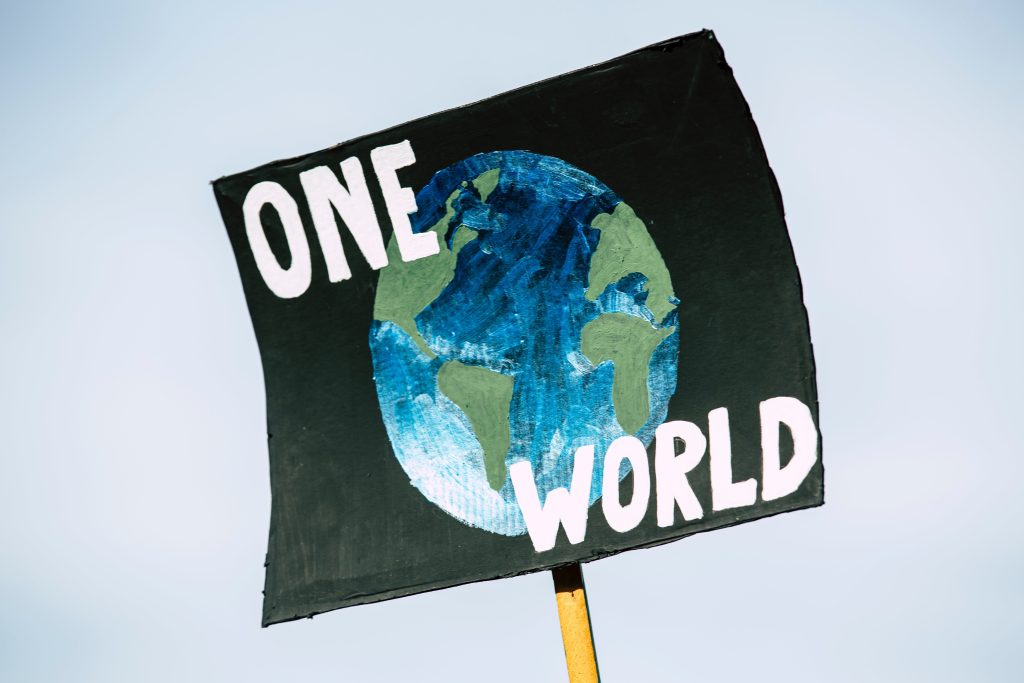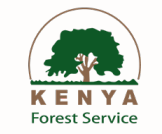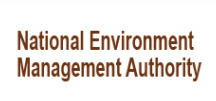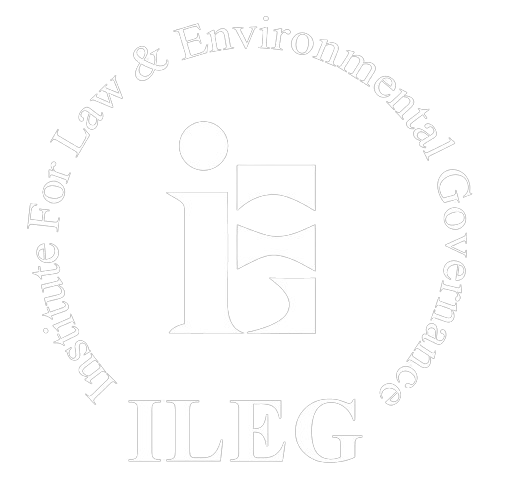CLIMATE CHANGE, WATER & ENERGY
Supporting climate action, conservation & environmental initiatives to build sustainable, thriving and climate resilient communities.
ILEG focuses on five main areas: accelerating climate change mitigation and adaptation efforts, strengthening capacities to mobilize climate finance, advancing transition to clean and efficient energy technologies, enhancing governance for green growth, and building resilience through effective water management.

Overview
Managing climate change contemplates a triple win strategy that results simultaneously in climate change mitigation, adaptation, and sustainable development. This implies that development goals and strategies must integrate the opportunities and threats of a changing climate in order to safeguard development from climate impacts while slowing further warming.
To enhance adaptive capacity and strengthen resilience to climate related hazards and natural disasters, we support local communities and NGOs to participate effectively in energy, water and climate change governance; build capacities of local communities through training and technical support to implement climate smart sustainable initiatives; and partner with governmental agencies, research organizations, private sector and local communities to scale up locally led climate action.
Our Motivation
Climate change, water and energy are inextricably connected; action in one area has impact on the others. Climate change is a major driver of increasing temperatures, loss of snowpack and changing precipitation. Related extreme events such as droughts, storms and floods significantly degrade water catchments and reduce water availability and quality, ultimately impacting life cycles of water and energy.
The Paris Agreement, reached at COP21 in 2015, commits governments to take urgent action to combat climate change. It reinforces a collective goal of not only holding global warming to1.5 degrees by 2050, but also enhancing adaptive capacity and strengthening resilience to climate-related hazards and natural disasters. Reducing climate impact and slowing further warming requires collaborative actions and all-hands approach, working across sectors and governing levels.
Our Approach
ILEG works with national and county governments, the private sector, research institutions, local communities and national and international non-governmental organizations to strengthen capacities and raise ambition for climate action
Our research on climate change, energy systems and water management informs effective policy making and practice. We support national and county governments to formulate and implement appropriate policies and favourable, transparent and stable regulatory frameworks on climate change, water management and green growth. We empower local communities and NGOs to participate in energy, water and climate change governance. We offer training and technical support to public, private, NGOs, sub-national and regional entities and international organisations that seek accreditation to the GCF and other climate funds. We work with governmental agencies, research institutions, NGOs and local communities to promote climate innovation and investment in order to reduce vulnerability and strengthen resilience to climate hazards and natural disasters while slowing further warming.
PROGRAMME ELEMENTS
ILEG works with national and county governments, the private sector, research institutions, local communities and national and international non-governmental organizations to accelerate climate change mitigation and adaptation efforts.
Managing climate change contemplates a ‘triple win” strategy that results simultaneously in climate change mitigation, adaptation, and sustainable development. This implies that development goals and strategies must integrate the opportunities and threats of a changing climate in order to safeguard development from climate impacts while slowing further warming.
To enhance adaptive capacity and strengthen resilience to climate-related hazards and natural disasters, we support local communities and NGOs to participate effectively in energy, water and climate change governance; build capacities of local communities through training and technical support to implement climate-smart sustainable initiatives; and partner with governmental agencies, research organizations, the private sector and local communities to scale up locally led climate action.
ILEG offers training and technical support to public, private, non-governmental, sub-national and regional entities and international organizations that seek accreditation to the GCF and other climate funds.
Finance has a critical role in enabling sustainable and transformative climate actions. The Paris Agreement of the UNFCCC commits to align financial flows with a pathway towards low emission climate resilient development. However, a substantial financial gap exists to release predictable and reliable flows of finance. All countries are falling way short with financial flows three to six times lower than levels needed by 2030. Kenya, for instance, will need up to US$65 Billion in 2020-20302 to deliver national climate targets embedded in Nationally Determined Contributions (NDCs).
To address these financial gaps and scale up climate action that is planned, sustainable and transformative, Kenya is making deliberate efforts to mobilize a mix of domestic and international climate finance. The Country is also looking to carbon finance and carbon markets as part of the answer. To enhance capacities to mobilize climate finance, we train representatives of the national and county governments, the private sector, NGOs, and local community groups on procedures for the GCF and other climate funds; conduct climate finance readiness training to raise awareness and capacity-building of the GCF accredited entities; train representatives of the national and county governments, private sector, NGOs and local community groups on carbon finance and carbon markets; support national and county governments and private sector to develop and implement policies, regulations and guidelines on climate finance; and support the establishment of a sound legal system to build the institutional foundation for the development of carbon finance.
ILEG raises ambition for climate action while pursuing the path of green growth by promoting policies and practices to ensure sustainable, equitable and inclusive economic development
Kenya’s economic growth is largely realized at the expense of a profound environmental and social impact. Thus, there is a need to shift focus on pursuing the path of green growth by adopting policies and practices to ensure that economic development is attained in an environmentally friendly manner while supporting job creation, human well-being and competitiveness.
However, the pace of green transition is painstakingly slow in Kenya partly due to inadequate market-based policy instruments that reward the private sector to adopt green practices. Additionally, the planning and implementing capacities and know-how at the subnational level are insufficient to enable the green transition. Properly functioning vertical policy coordination mechanisms between the national and county levels often do not exist yet, but represent a prerequisite for an integrated green framework that will support resource efficiency, circularity and reduced climate and environmental footprints.
To raise ambition for climate action while building economies that are cleaner, more equitable and competitive, We undertake research on governance for green transition; organise multi-stakeholder policy dialogues to raise ambitions for green transition and recommend policy initiatives; strengthen capacities through training to support knowledge transfer, and facilitate and steer policy and action on the green framework; and develop a framework to guide the integration of green transition principles within existing private and public sector policies, legislations, regulations and guidelines.
ILEG advances the transition to clean and efficient energy technologies to ensure the race towards zero emissions becomes a reality
Paris Agreement committed governments to collectively pursue efforts to limit global warming to 1.5 degrees Celsius by 2050 to avoid a series of catastrophic impact. Holding global warming to 1.5 degrees requires transition in energy systems that will expand access to affordable, reliable, sustainable and modern energy services.
Kenya’s NDC features renewable energy resources. In spite of additional investment in renewable energy mix, the pace of transition to cleaner, affordable, reliable and sustainable energy systems is not sufficient to achieve the targets embedded in the NDC, SDG goals (SDG 7 on affordable and clean energy, and SDG 13 on climate action) and the Paris Agreement. Accelerating the transition to resilient futures and low carbon energy requires significant shifts not only in technology, but in policy reforms and the behaviour of end-users
To advance transition to clean and efficient energy technologies, we undertake research on energy systems in order to inform decision-making; enhance capacities to formulate energy policies, legislations, regulations and guidelines; promote the uptake of clean and affordable energy technologies; and develop county-level renewable energy platform for learning, knowledge transfer and resource mobilization.
ILEG builds climate resilience and slows further warming through effective water management
Climate change manifests largely through its impact on water resources. It reduces the predictability of water availability and affects water quality. Climate change also increases the occurrence of extreme weather events, which degrade water catchments and inflict damage to water infrastructure. Conversely, the way water is managed influences the drivers of climate change. The Paris Agreement, the 2030 Agenda for Sustainable Development and the Sendai Framework for Disaster Risk all highlight the importance of improved water management. Many NDCs prioritizes water-based adaptation measures.
To build climate resilience and slow further warming through effective water management, we promote the uptake of innovative water management technologies through appropriate policies; enhance capacities to plan, implement and monitor water-related activities in climate change strategies and plans; support stakeholders’ forum on effective water governance; and train and support local communities to conserve and protect water catchments, with emphasis on Nature-based Solutions (NbS).
OuR PROJECTS
CURRENT PROJECTS
Environmental Maritime Governance in Kenya (EMG-K)
We study Kenya’s engagement in the IMO’s GHG Emission reduction negotiations and enforcement of international regulatory measures at the national level.
Environment, Democracy & Justice
Securing the natural assets of local and vulnerable communities by supporting and promoting due process rights.
Science, Technology & Innovation
Supporting the development and use of scientific knowledge and technological innovation to strengthen the management and governance of the environmental and natural resources.
International Climate Initiative (IKI):Vertical integration and learning for low emission development in Africa and Southeast Asia (V-LED)
Strengthening national and county capacities to promote climate resilient low carbon development at county level in Kenya: Learning through exchange and networking
International Climate Initiative (IKI):Vertical integration and learning for low emission development in Africa and Southeast Asia (V-LED)
Strengthening national and county capacities to promote climate resilient low carbon development at county level in Kenya: Learning through exchange and networking
International Climate Initiative (IKI):Vertical integration and learning for low emission development in Africa and Southeast Asia (V-LED)
Strengthening national and county capacities to promote climate resilient low carbon development at county level in Kenya: Learning through exchange and networking
PAST PROJECTS
Strengthening Democracy through Community-based Participatory Planning for Climate Resilient Low Carbon Development in Kenya.
Natural resources governance and local development planning provide critical entry points for fostering appropriate climate change responses,….
Climate Change
What do you see when you look at these pictures? They say a picture is worth a thousand words. This is quite true. When I look at these pictures, I see the …
Climate Change in Africa
Strengthening national and county capacities to promote climate resilient low carbon development at county level in Kenya: Learning through exchange and networking
International Climate Initiative (IKI):Vertical integration and learning for low-emission development in Africa and Southeast Asia (V-LED)
An increasing number of national and regional support programmes and new funding approaches and initiatives are emerging particularly in….
International Climate Initiative (IKI):Vertical integration and learning for low emission development in Africa and Southeast Asia (V-LED)
Strengthening national and county capacities to promote climate resilient low carbon development at county level in Kenya: Learning through exchange and networking
International Climate Initiative (IKI):Vertical integration and learning for low emission development in Africa and Southeast Asia (V-LED)
Strengthening national and county capacities to promote climate resilient low carbon development at county level in Kenya: Learning through exchange and networking
Our Partners























ILEG is an independent, non-profit public interest law and policy organization focused on promoting sustainable development. We work with local communities, governments, the private sector and civil society organizations (CSO’s) to ensure fair, balanced and equitable development policy choices to improve peoples’ lives and protect the environment.
© 2024 Institute for Law and Environmental Governance – KENYA All Rights Reserved | Terms of Service | Privacy Policy
